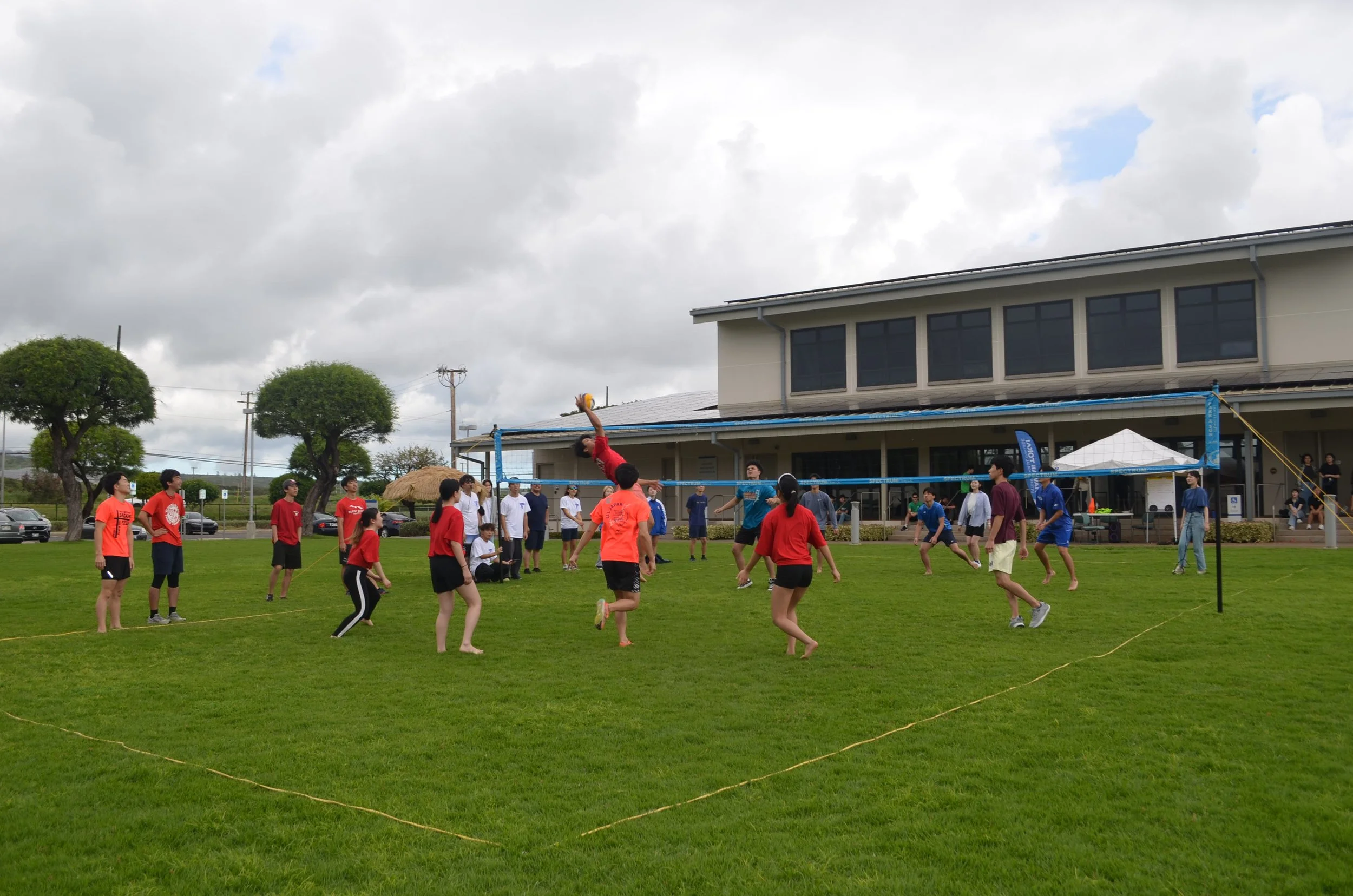Home / FAQ
Frequently Asked Questions
-
HTIC is affiliated with the Tokai University Educational System but operates independently as a private two-year junior college in West Oahu with its own admissions, programs, and campus life. Learn more about Tokai University.
-
Yes. Hawaii Tokai International College (HTIC) is accredited by the Accrediting Commission for Community and Junior Colleges (ACCJC). Learn more.
-
West Oahu (Kapolei), approximately 20 minutes from Daniel K. Inouye International Airport. If you’re on the island, visit us, if not, take our virtual tour.
-
The campus is generally considered very safe. We have 24/7 patrols, well-lit walkways, and a residence hall manager lives on site.
-
HTIC follows a quarter system, offering four 10-week terms each year. Students can start and graduate in any term, giving you the flexibility to plan your studies around your personal goals and timeline.
-
It’s not required to finalize a transfer destination before enrolling, but early planning is strongly recommended. Discuss potential transfer universities with Academic Advising early so your course selections align with their requirements.
-
Transferability is evaluated by each receiving institution on a course-by-course basis. HTIC courses are designed with transfer in mind (e.g., completing the required 60 credits to obtain your Associate of Arts degree and can satisfy many general education requirements), but final acceptance and total transfer of credits rests with the receiving school.
-
Academic Advising at the Office of Student Services offers transfer counseling. Advisors guide you on course equivalencies, articulation agreements or partnerships, application timelines, and can connect you with contacts at prospective universities
-
Yes. Many HTIC students transfer to universities outside the U.S. Transfer policies vary by country and institution. Students are highly encouraged to research requirements early (e.g., language proficiency, credit equivalencies) and consult Academic Advising for guidance on documenting courses, meeting deadlines, and navigating each institution’s process.
-
Yes. Once an international student is accepted and confirms their intent to enroll, HTIC can issue a Form I-20 to support their F-1 student visa application.
-
Yes. Adequate health insurance is required for course registration. HTIC provides guidance on approved plans.
-
On F-1 visas, on-campus work up to 20 hours/week during term and full-time during breaks (subject to availability). International students also have the option to apply for Optional Practical Training (OPT) upon completion of their A.A. degree (subject to SEVIS approval). Consult the Office of Student Services for further details.
-
Admission requirements differ based on your application status: see the International Admissions page or the U.S. Admissions page.
-
Yes. The fee is $50 for US applicants and $100 for international applicants.
-
For the Liberal Arts Program (Associate Degree Program), a minimum GPA of 2.5 is required. There is no minimum GPA requirement for the College Preparatory Program (Academic English Program).
-
Every effort will be made to review and evaluate applications on a timely basis. All applications (international or domestic) will be processed within two weeks.
Once accepted, you’ll have one month to confirm or defer your enrollment. Admission can be deferred for up to one calendar year without reapplying.
-
TOEFL iBT, IELTS, Duolingo English Test, Pearson Test of English, EIKEN, and other recognized exams. For the ESL/College Prep Program, scores may be recommended but placement testing can occur after arrival.
-
We offer Liberal Arts Program (Associate’s Degree Program) and College Preparatory Program (Academic English Program) for enrolled students. In addition, we also offer customized English language programs for a variety of schools and groups.
-
Requirements vary by institution. With HTIC, you can complete your Associate of Arts degree by earning 60 credits, which can be transferred to your receiving university (subject to that university’s policies). Check the specific requirements of your target universities and consult HTIC advisors to plan your credit load and timeline.
-
Start in your first or early second term. Early planning ensures courses align with transfer requirements. Academic Advising and the Office of Student Services provide transfer counseling and can guide you on equivalencies, articulation agreements, and timelines.
-
Small classes and personalized support through academic advising, tutoring (writing and subject tutors), faculty office hours, and counseling services for overall academic success.
-
$5,200 per term. Students who enroll in all four terms pay about $20,800 per year; those who take three terms (e.g., taking one quarter off) pay about $15,600 per year. Tuition is billed on a per-term basis; additional fees cover housing, meal plans, and other related services. See Tuition and Fees for more details.
-
Tuition payment is typically due before the start of each term according to the academic calendar. Payment methods often include online payment via credit/debit card, bank transfer, or payment portal. Payment plans or installment options may be available. Contact the Fiscal Office for deadlines, plan details, and instructions on how to set up payments.
-
Yes. Available scholarships include the Gateway Scholarship, Global Citizen Scholarship, and TOEFL Scholarship. See Scholarship for eligibility criteria, award details, and application procedures.
-
Yes. New U.S. freshmen who meet the Gateway Scholarship requirements are automatically considered. See Scholarship for more details.
-
International students are required to live on campus for their first two terms. U.S. students may choose to live on or off campus, subject to availability and eligibility.
-
The fee covers room accommodation, basic utilities, and common-area maintenance. Additional charges will apply for meal plan and laundry services.
-
Yes. All students living in the college-operated dormitory are required to purchase a meal plan as part of their housing agreement. For safety reasons, cooking stoves and hot plates are not allowed in the dorms. Microwaves and rice cookers may be used in the designated lounge areas within the dormitory.
-
On-campus residents have access to residence staff (including a manager on-site for emergencies), 24/7 security patrol, and common-area amenities. If issues arise, students can contact Resident Hall Manager or Campus Security at any time.
Keep Exploring
About
Learn how HTIC’s mission and values foster a global, community-focused environment.
Admissions
Explore how to apply to HTIC and start your academic journey in Hawai‘i.
Life at HTIC
Get a glimpse into campus life with housing, events, and community.
Academics
Explore our programs and the support that helps you grow and succeed.




